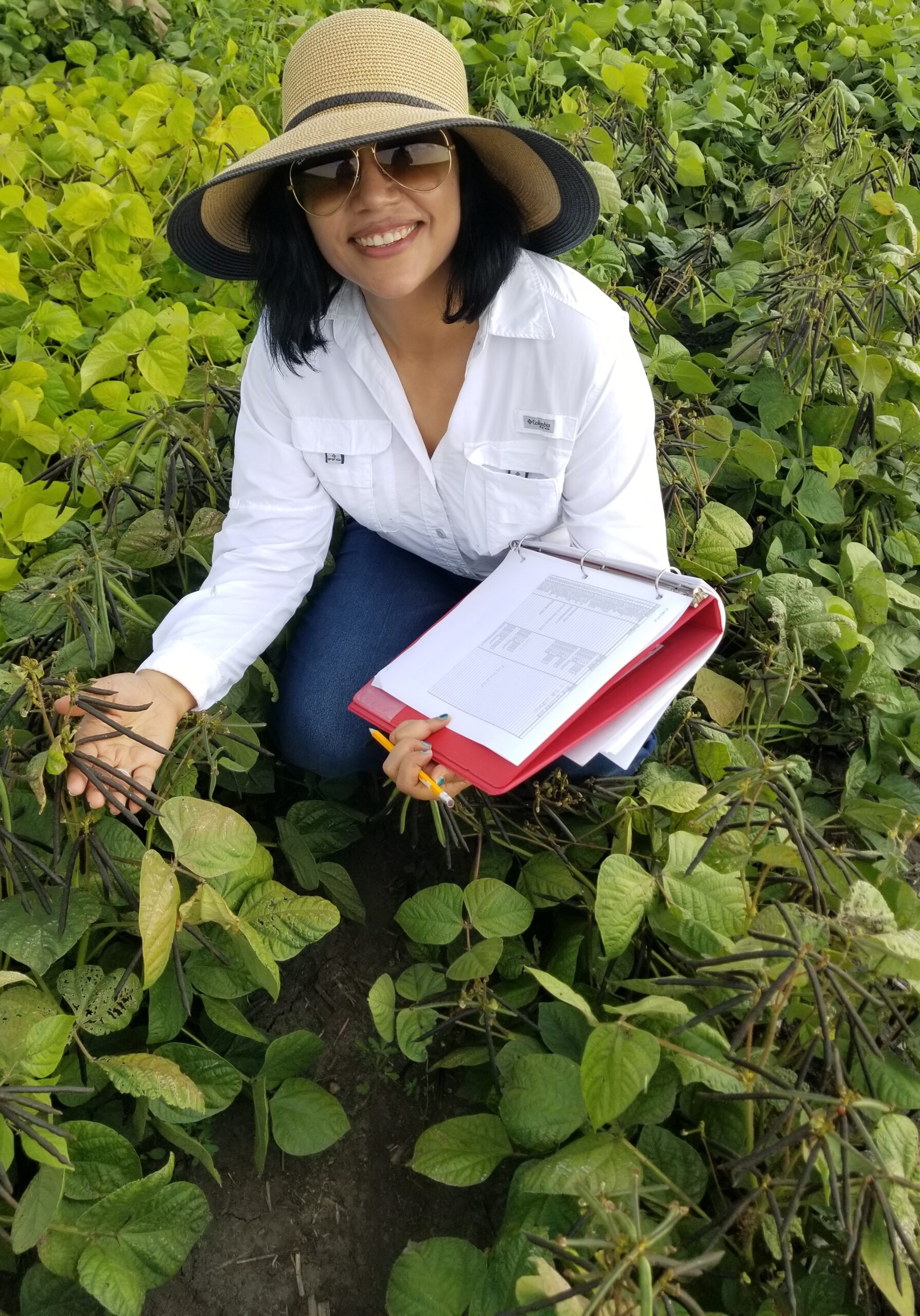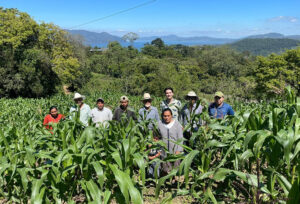Plant Breeding
Plant Breeding is the genetic improvement of crop plants through the study and application of genetics, statistics, agronomy, plant pathology, entomology, and related sciences. Crop plants included are Maize, Soybean, Sorghum, Sunflower and other crops in conjunction with the North Central Regional Plant Introduction Station.
An advanced degree in plant breeding offers tremendous job opportunities including, management and operation of public and private plant breeding programs, research on plant breeding methodologies, bio-technologies, and information technologies to improve breeding efficiency and effectiveness, cultivar development.
Learning Goals
Demonstrate
Demonstrate comprehensive understanding of scholarly literature in the area of study, i.e., plant breeding.
Hypothesize
Form testable hypotheses and articulate research objectives that, when met, will lead to significant contributions to the field of study.
Conduct
Conduct original research via appropriate data acquisition, analysis, and reporting of data.
Interpret
Interpret research results appropriately, integrating them into the existing knowledge in the discipline.
Communicate
Clearly and accurately communicate research findings orally and in writing, and appropriate use of display items (tables, figures, and other appropriate types of presentation), electronic or other forms of media.
Scholarship
Conduct scholarship, in teams or with independence, in ways that consistently demonstrate ethical practice and professionalism.
Plant Breeding Experts
Related Projects
- RII Track-2 FEC: Genome Engineering to Sustain Crop Improvement (GETSCI)
- Breeding of plant based protein crops (mung bean and urd bean) using USDA germplasm
- FACT: International workshop on Machine Learning for Cyber-Agricultural Systems
- RESEARCH-PGR: A Genome-level Approach to Balancing the Vitamin Content of Maize Grain
- Plant architecture
- Photosynthesis in sorghum under non-stress, cold and drought stress
- Sorghum breeding program for biofuel production
- “Transgenic Approaches In Managing Sudden Death Syndrome In Soybean”
- Parallel Algorithms and Software for High-Throughput Sequence Assembly
- NRT-DESE: P3 – Predictive Phenomics of Plants
- Hierarchical Modeling and Parallelized Bayesian Inference for the Analysis of RNAseq Data
- Genetic networks regulating structure and function of the maize shoot apical meristem
- Low-cost nitrate sensors to populate genotype-informed yield prediction models for next generation breeders
- Development and Evaluation of Improved Strategies for Genomic Selection Via Simulations and Empirical Testing
Agricultural Meteorology
Agricultural Meteorology
The Agricultural Meteorology major integrates knowledge from a variety of scientific disciplines in order to determine how cropping systems are affected by weather and climate, and how cropping systems themselves affect weather and climate.
Learn MoreCrop Production & Physiology
Crop Production & Physiology
Become an expert in crop physiology, ecology, and management; forage quality and utilization; seed production and physiology; weed biology and control
Learn MorePlant Breeding
Plant Breeding
Plant Breeding is the genetic improvement of crop plants through the study and application of genetics, statistics, agronomy, plant pathology, entomology, and related sciences.
Learn MoreSoil Science
Soil Science
Explore the living and vast ecosystem under our feet. Soil science covers chemistry of the soil, fertility, management, microbiology and biochemistry, morphology and genesis as well as soil physics.
Learn More



















